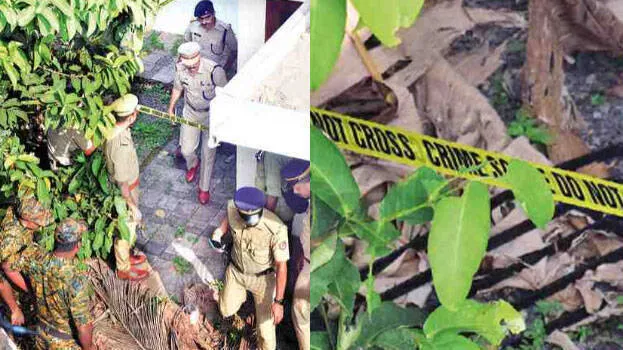
The logo of the National Intelligence Service is seen on the gate of the spy agency's headquarters in Seoul, Oct. 29. Yonhap Rival parties agree on law revision to target not only North Korea but all foreign countries By Kwak Yeon-soo Korea is set to revise its espionage law to punish individuals for spying not only for North Korea but also for "all foreign countries.
" This comes after a series of cases in which Korea's confidential security information was allegedly leaked to China. If passed by the National Assembly, this would be the first revision to the espionage law since Korea established the Criminal Act in 1953. The proposed amendment reflects the evolving nature of espionage activities, which now span beyond military matters to include industrial sectors.

A parliamentary judiciary subcommittee passed a bill, Wednesday, that aims to expand the scope of espionage from leaking information to an "enemy country" to "all foreign countries." The passage of the bill was the result of rare bipartisan cooperation. The current law (Article 98 of the Criminal Act) stipulates that individuals working for an enemy country, or those who are aware of espionage activities but fail to report them to the relevant authorities, can face penalties including the death penalty.
Under this stipulation, the law designates North Korea as the sole enemy, and individuals working for the North are subject to the espionage law. However, this excludes individuals or groups working for other countries, such as China, from being punished for spying on South Korea. There have been efforts to revise the law in the 21st National Assembly, but the proposal failed to pass the Legislation and Judiciary Committee.
However, in the 22nd Assembly, both the ruling and opposition parties have come together for the first time to support the bill. The parliament is set to pass the bill during the plenary session on Nov. 28.
“This is the first time in our constitutional history that the espionage law has been revised,” ruling People Power Party (PPP) leader Han Dong-hoon said during a Supreme Council meeting, Thursday. Han has repeatedly called for expanding the scope of punishable foreign espionage after prosecutors indicted a Korea Defense Intelligence Command (KDIC) official in August for allegedly providing military secrets to Chinese hackers believed to be linked to North Korea. The leaked secrets reportedly included confidential data on South Korean undercover agents, such as their names and overseas assignments.
He called for urgent action after a South Korean national was found to have been detained in China on charges of espionage while working for a Chinese semiconductor company. gettyimagesbank There have been growing calls for a revision after several high-profile cases of technology leaks. According to data provided by Rep.
Lee Jae-kwan of the main opposition Democratic Party of Korea (DPK), 23 cases of industrial espionage were detected in 2023. The majority of the incidents involved cutting-edge semiconductor technologies, an area in which South Korean firms are among the world leaders. Several DPK lawmakers have also proposed relevant bills to strengthen legal protections against industrial espionage.
Rep. Park Jie-won, who served as the director of the National Intelligence Service (NIS) from 2020 to 2022, also proposed one of the bills in September, saying, “We need to revise the espionage law to protect our security and technology." Meanwhile, a Chinese man was apprehended by the police on Sunday for filming the NIS headquarters.
However, he was released from custody after questioning. In a separate case, three Chinese students are under investigation by police for allegedly taking photographs of military facilities in South Korea over the past two years. The Chinese nationals were caught flying a drone toward the Naval Operations Command in Busan on June 25 and are accused of taking unauthorized photographs of the USS Theodore Roosevelt.
.










